ACS Fellows are members who have made distinguished contributions to the field of information and communications technology in Australia.
This year, five ACS members have become Fellows of ACS.
Mr Chris Radbone (South Australia)
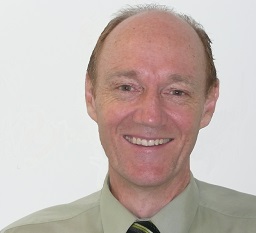
Mr Christopher Radbone has made a distinguished contribution in the areas of governance, privacy protected sharing of data, service management and standardisation through his passion and capacity to engage and influence organisations and government policy. Mr Radbone’s passion and dedication has earned him the nickname of ‘Mr ITIL’ for his distinguished contribution to influencing and building the professional capacity of particularly SA government.
As inaugural itSMF SA Branch Chair he successfully established itSMF’s presence in SA, proactively influencing the adoption of IT Service Management through quarterly ACS/itSMF Service Management special Interest Groups, and nationally with the Standards Australia IT Governance Committee IT-030-05. The IT-030-05 committee evaluated BS15000 strengths and weaknesses for managing IT services, making the case for its adoption firstly as Australian Standard (AS8018) and then International Standard (ISO/IEC 20000).
Mr Radbone’s focus on empowering organisational performance through data sharing and NT DataLink has informed decision makers by enabling innovative, public, good research and analysis which has resulted in legislative regulatory changes. He is considered a national leader designing and implementing privacy protecting technologies for sharing people’s sensitive data. On ACS’s Data Sharing Committee, he continues to contribute his passion for social justice, public value, data science and security. Mr Radbone has also made a distinguished consistent contribution to the Australian Computer Society over the past 21 years and from 2013 on the SA Branch Executive as Chair, Vice-Chair and Treasurer.
Mr David Wood (Victoria)
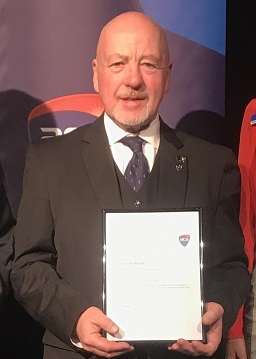
Mr David Wood had made a long and distinguished contribution to the ICT industry in the UK, New Zealand, Australia and elsewhere. David is a pioneer in the design, development and implementation of information technology to meet organisational goals and improve organisational efficiency. Early in his career, he was responsible for the development of a then leading-edge human resource management and payroll system for the very popular IBM AS/400 platform that was commercialised and successfully implemented across a range of organisations.
Over his long career, David has actively participated in industry, community and professional groups with commitment, success and professionalism and he is a widely-sought mentor and educator for those entering the profession and building their careers. David has been rightly recognised for the distinction of his career by other international professional associations.
Ms Jacqueline Hartnett (Tasmania)
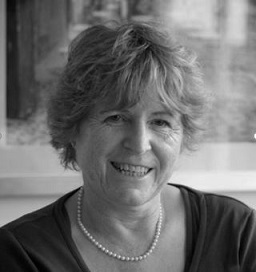
Mrs Jacqueline Hartnett has made a distinguished contribution to ICT in Australia through her long career. Jacqueline was a pioneer, and is a role model for women, in computer security education. She was responsible for the development of the first cybersecurity courses offered in Australia laying the foundations for modern curriculum. Jacqueline has led significant research in computer security and she is respected internationally for her contributions.
Jacqueline was instrumental in early research on personal national health records and secure ways of facilitating access to specialist health services from remote areas. She has also contributed significantly to the Australian Government’s standard cyber security policy and procedures and the protection of Australian critical infrastructure. Jacqueline served on the JTC1 Strategic Advisory Committee for two years.
Dr Vivienne Conway (Western Australia)
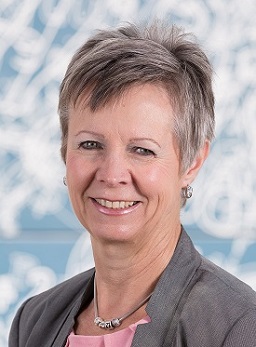
Dr Vivienne Conway has made a distinguished contribution to ICT in her work in the area of website accessibility. She is a strong proponent for the rights of people with disabilities. She has National and International recognition for her advocacy work, as well her consultancy work in the institutionalising of Accessibility standards in different parts of the world. Recognised by the UNDP for her expertise, she has devoted large amounts of time to the establishment and adoption of accessibility standards in both Australia and the Middle East. Her work has resulted in greater accessibility to the world wide web for millions of people in parts of the world where technology has previously been for the privileged rather than everyone.
Dr Conway has driven the thought leadership for website accessibility for over a decade, both at an academic and research level, as well as through consultancy and the advocacy of best practice in web access. As one of the few long-standing continuous members of the World Wide Web Consortium, she has given a strong and clear voice to the world on the need to maintain web access for all.
Professor Paulo de Souza (Queensland – previously Tasmania)
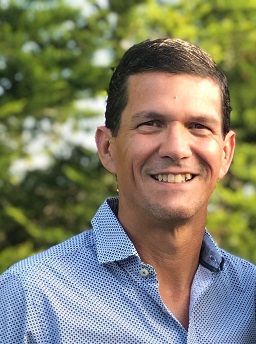
Professor Paulo de Souza has made a distinguished contribution to the leadership of research in science. From his innovative approach in machine learning that has permitted mineral identification on Mars, to his worldwide recognition for informing the research on the health of Honey Bees, Paulo de Souza has carved a reputation as a globally recognised solver of complex problems. His leadership has extended beyond his regular work to bring together teams of others highly collaborative and highly successful ways. His work in the areas of micro sensors and sensor networks has furthered the ICT profession in Australia, and his combined leadership in both academia and in industry has inspired people involved in technology, computing, and science.
In addition to his own ICT-related contributions, Paulo is regarded as a role model and mentor who has contributed to the growth and success of countless individuals, teams, projects and outcomes. His passion for ICT is both strongly magnetic and highly productive.









